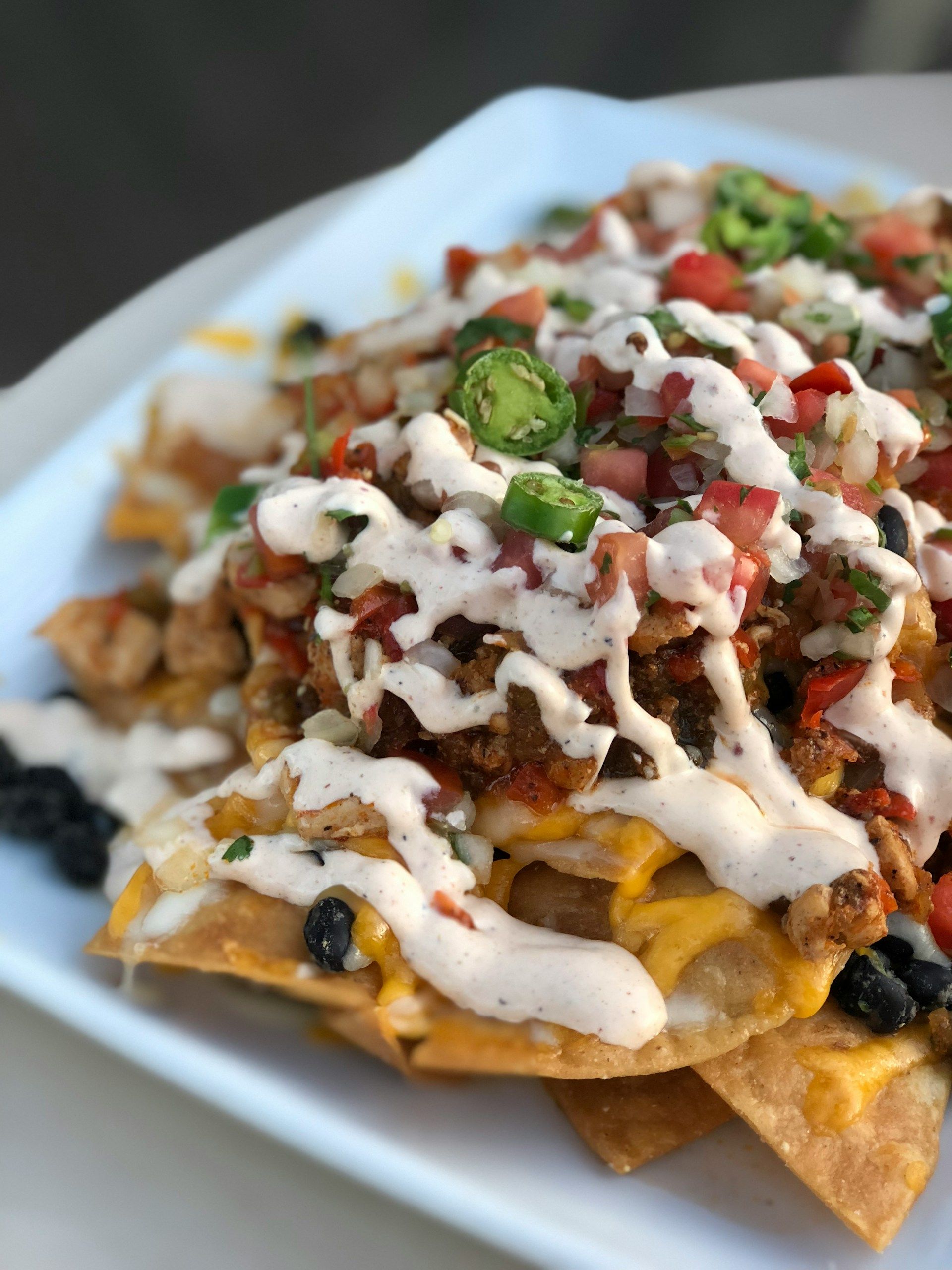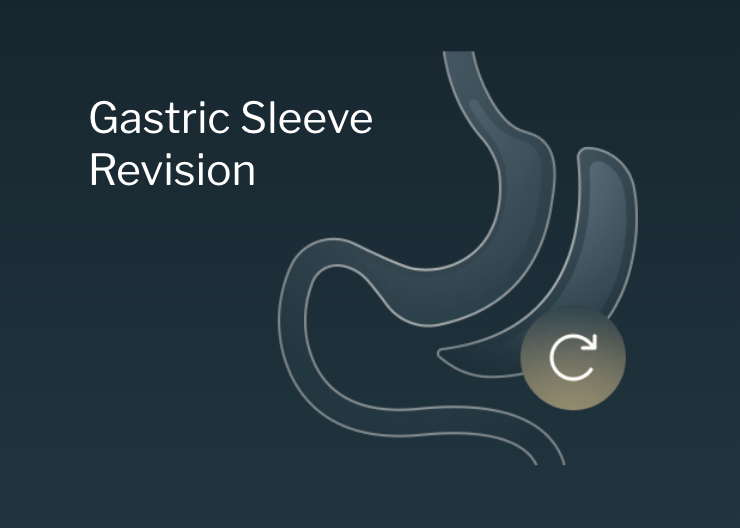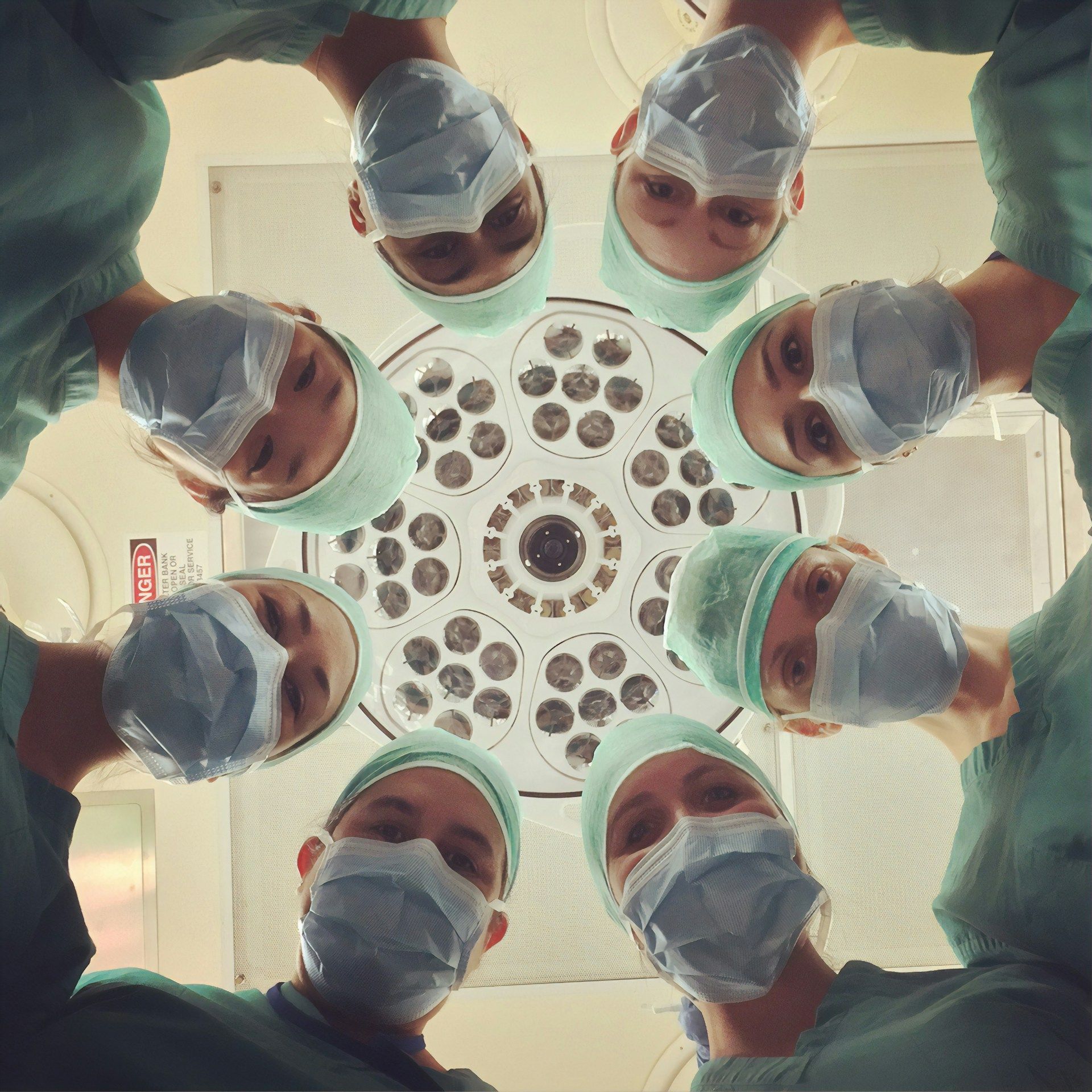Overeating After Gastric Sleeve: Symptoms & What To Do
Concerned about overeating after gastric sleeve? Learn the symptoms of overeating after gastric sleeve, what to do if you overeat, and how to stay on track.

Bariendo Team
Team @ Bariendo
Overeating after gastric sleeve can have serious consequences, potentially undoing your hard-earned progress. Knowing the symptoms and what to do if you overeat after gastric sleeve is crucial for avoiding complications such as dumping syndrome, stomach stretching, and digestive discomfort and for ensuring your continued weight loss success.
Below, you’ll learn about the symptoms of overeating after gastric sleeve, what to do if it happens, and how to prevent it. Understanding these key aspects will help you stay on track with your weight loss journey and achieve lasting results.
Why Does Overeating Occur After Gastric Sleeve?
Gastric Sleeve, or Vertical Sleeve Gastrectomy (VSG), accounted for 57% of the weight loss procedures performed in the US in 2022. It’s one of the safest and most popular weight loss surgeries, with an average of 23% weight loss. However, the complication rate for gastric sleeve is 12-15%, and overeating after the procedure can be a significant contributing factor.
Overeating after gastric sleeve is often attributed to a combination of psychological and physiological factors. Understanding these factors can help you manage your eating habits more effectively and act quickly if you need professional support.
Psychological Factors
The psychological factors that contributed to overeating before gastric sleeve surgery don’t always disappear after the procedure. Many patients still struggle with emotional eating, stress, and habitual behaviors that can still lead to overeating post-surgery.
It’s important to re-evaluate your relationship with food after the procedure. Work with dieticians and mental health professionals as needed to develop better coping mechanisms, learn portion control, and adjust your eating habits to support your weight loss journey.
Physiological Factors
The physiological changes that take place during gastric sleeve surgery can contribute to overeating after the procedure. The surgery reduces the size of the stomach by about 80%, meaning it can only hold small amounts of food at one time. This reduced stomach size is intended to help you feel fuller sooner and eat less.
But, if you overeat regularly after the procedure, your stomach can gradually stretch, allowing you to consume more food over time. This stretching diminishes the surgery’s restrictive effects, potentially leading to weight regain.
If you notice an increase in the amount of food you can eat comfortably, it’s important to consult with your bariatric surgeon to evaluate your stomach’s capacity. You may need to be referred to a bariatric endoscopist for possible revisions.
Symptoms of Overeating After Gastric Sleeve Surgery
Overeating after gastric sleeve surgery can lead to a variety of uncomfortable symptoms. Knowing these signs and why they occur can help you stay proactive and informed.
Severe Abdominal Discomfort or Pain
Severe abdominal discomfort or pain can occur when you overeat after gastric sleeve surgery because your stomach is smaller and cannot handle large amounts of food. This can cause the stomach to stretch, leading to severe discomfort or pain as it tries to accommodate more food.
Bloating and Excessive Gas
Bloating and excessive gas are common symptoms of overeating after gastric sleeve surgery. Overeating can cause your digestive system to become overwhelmed, leading to a buildup of gas and a feeling of fullness or bloating.
Diarrhea After Eating
Diarrhea can occur if you consume too much food at once, especially foods that are high in fat or sugar. Your smaller stomach and altered digestive tract can struggle to process these foods, resulting in rapid transit through the intestines and diarrhea.
Constipation Issues
Constipation can also result from overeating, especially if your diet lacks adequate fiber or hydration. The smaller stomach and altered digestive process post-surgery can make it harder to maintain regular bowel movements if dietary requirements are unmet.
Nausea and Vomiting Episodes
Nausea and acid reflux are common signs of overeating after gastric sleeve. When your stomach is stretched beyond its capacity, it can trigger nausea and vomiting as the body attempts to relieve the pressure.
Heartburn and Acid Reflux Symptoms
Heartburn and acid reflux can occur when overeating after gastric sleeve surgery because excess food can cause stomach acid to flow back into the esophagus. The smaller stomach size and increased pressure from overeating exacerbate these symptoms.
Unexpected Weight Gain
Unexpected weight gain can happen if overeating becomes a regular habit after gastric sleeve surgery. Consuming more calories than your body needs can counteract the benefits of the surgery.
Experiencing Weight Loss Plateaus
Weight loss plateaus, where your weight remains stable despite continued efforts to lose weight, are common with overeating after gastric sleeve because excessive calorie intake prevents the calorie deficit required for continued weight loss. When you consistently consume more food than your stomach can handle, the increased calorie intake makes it harder to burn them off and may halt your progress.
What To Do If You Overeat After Gastric Sleeve
It’s important to act quickly if you find yourself overeating after gastric sleeve surgery. Reaching out to your bariatric surgeon can help prevent complications that may require surgical revision or hinder your weight loss results.
Immediate Steps to Take for Relief
If you find yourself overeating, stop any further food intake and allow your stomach to rest. Avoid drinking liquids during or immediately after meals, which can lead to overfilling of the stomach and further discomfort.
Engage in gentle physical activity, such as walking, to aid digestion and relieve some of the pressure. Hydrate with water, but wait at least 30 minutes after eating to avoid potential stomach stretching.
Why Early Detection is Crucial for Successful Weight Loss
Stomach stretching can happen if you consistently eat more than your smaller stomach can reasonably hold. Over time, this stretching can worsen, leading to an increased capacity for food, weight regain, and other health complications.
If you wait too long to address overeating, it may be too late to prevent permanent stomach stretching. Contacting your bariatric surgeon immediately is crucial for assessing the extent of the issue and taking corrective action. Early intervention may help you avoid the need for revisions and keep you on track with your weight loss goals.
What to Know About Gastric Sleeve Revision
If overeating has caused your stomach to stretch significantly, a gastric sleeve revision might be necessary. This procedure, known as Sleeve-In-Sleeve (SIS), is an endoscopic procedure that re-tightens your stomach without additional surgery. During the procedure, your doctor uses an endoscope to reduce the stomach’s volume, leading to earlier satiety and reduced food intake.
Although gastric sleeve can’t be reversed, it can be revised through this minimally invasive, same-day procedure where your doctor uses an endoscope to reduce the stomach’s volume, leading to earlier satiety and reduced food intake.
Consulting with the bariatric endoscopists at Bariendo can help determine if gastric sleeve revision is right for you and get you back on track toward your weight loss goals.
What Happens If You Eat Too Much After Gastric Sleeve
We’ve already touched on some of the consequences of overeating after gastric sleeve, but it’s worth exploring them in more detail to help you understand why it’s so important to act quickly.
Stomach Stretching and Dilation
Overeating after gastric sleeve causes the stomach to stretch and dilate. This means the stomach expands beyond its reduced size, counteracting the benefits of the surgery. Persistent overeating forces the stomach to stretch gradually, diminishing the effects of the surgery and allowing you to consume larger portions over time.
As the stomach dilates and stretches, the early satiety that initially helped control your food intake also diminishes, leading to increased hunger and calorie consumption. This can lead to a lack of progress and weight regain. Recognizing and addressing overeating habits early can prevent this detrimental cycle and ensure long-term weight loss success.
Dumping Syndrome
Dumping syndrome occurs in 20 to 50% of people who have gastric surgery. It happens when food moves too quickly from the stomach to the small intestine, leading to symptoms like nausea, vomiting, diarrhea, and even dizziness or rapid heartbeat in some cases.
This rapid transit of food disrupts normal digestion and absorption, leading to blood sugar drops, which can cause weakness and fatigue. Overeating and eating foods that are high in fat or sugar can trigger dumping syndrome, leading to extreme discomfort or pain after the meal.
Managing portion sizes and following the dietary guidelines provided by your bariatric surgery team reduces the risk of experiencing these unpleasant symptoms.
Long-Term Effects
The long-term effects of chronic overeating after gastric sleeve surgery can be severe. As we’ve already discussed, chronic stomach stretching can result in the need for endoscopic revision, lack of progress, and persistent weight regain, but the consequences don’t end there.
Long-term overeating after gastric sleeve can lead to health complications such as gastroesophageal reflux disease (GERD), nutritional deficiencies, and metabolic issues. These metabolic issues can include insulin resistance, where the body’s cells become less responsive to insulin, leading to higher blood sugar levels and an increased risk of type 2 diabetes.
Chronic overeating can also result in dyslipidemia, characterized by abnormal levels of lipids in the blood, which leads to an increased risk of cardiovascular disease. Addressing overeating quickly is just as crucial for your overall health as it is for lasting weight loss success.
How to Avoid Overeating After Gastric Sleeve
The following strategies can help you avoid overeating, develop healthier eating habits, and avoid potential complications after gastric sleeve surgery.
Follow Recommended Dietary Guidelines
Following the dietary guidelines provided by your bariatric surgical team is essential. These guidelines are designed to help you manage portion sizes, choose nutrient-dense foods, and avoid foods that can trigger dumping syndrome.
Know the Signs of Fullness
Know the signs of fullness to avoid overeating. These include physical cues like a feeling of tightness in the stomach, reduced appetite, and a sense of satisfaction. Stop eating as soon as you notice these signals to prevent stretching your stomach.
Eat Nutritious Meals in Small Portions
Focus on eating small portions of nutrient-dense foods. Include a variety of lean proteins, vegetables, and whole grains to keep you satisfied and nourished without overeating. Eating smaller, frequent meals can help you maintain energy levels and avoid hunger pains.
Practice Mindful Eating
Mindful eating means paying full attention to your eating experience. Eat slowly, savor each bite, and avoid distractions like television or smartphones during meals. This practice can help you recognize fullness cues more easily and prevent overeating.
Create a Support System for Accountability
Having a support system can be incredibly beneficial for maintaining healthy eating habits. Work with a dietician, join support groups, and involve supportive friends or family members in your journey. Accountability helps you stay motivated to make better food choices.
Get Back On Track with Bariendo
Healthy eating habits after gastric sleeve surgery are essential for long-term weight loss success. By recognizing the symptoms of overeating and taking immediate action, you can maintain the benefits of your surgery and achieve your weight loss goals.
If chronic overeating after gastric sleeve has led to reduced weight loss, the bariatric endoscopy experts at Bariendo are here to help. Our minimally invasive, same-day gastric sleeve revision allows you to regain control of your weight loss journey. Schedule a free consultation with our team to learn more and take the next steps toward a healthier, happier you!

